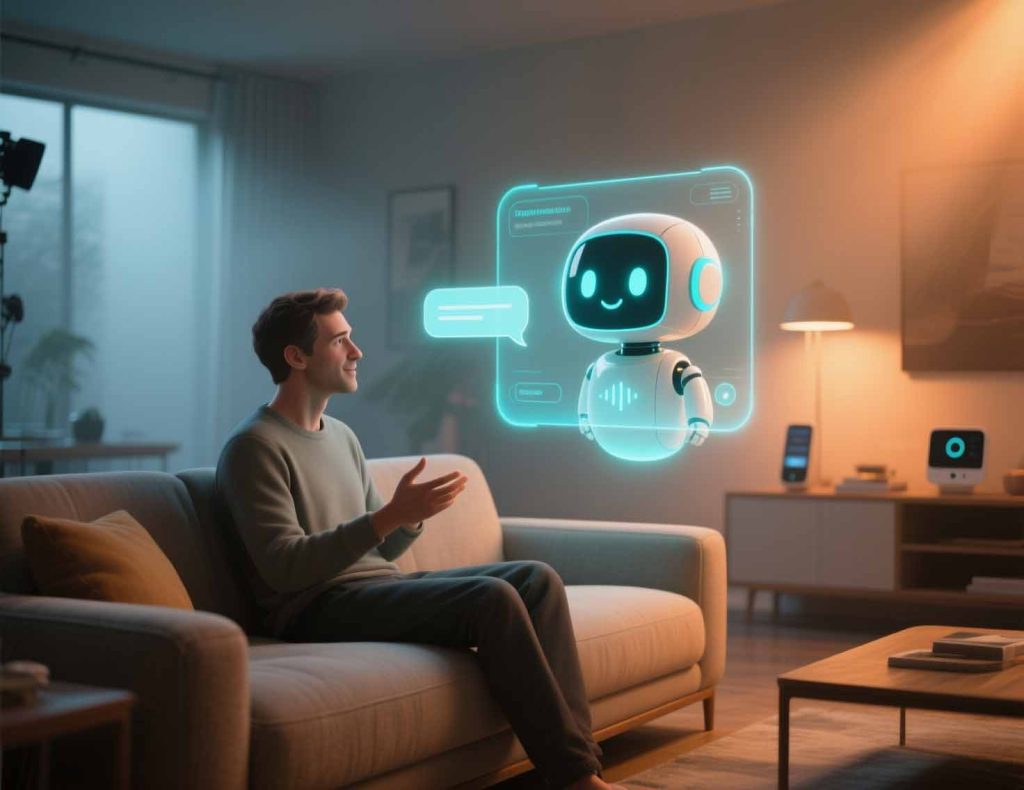Friendship. Such a big, loaded word for something that can be as simple as sitting next to someone on a couch without needing to fill the silence. We usually picture best friends as those people who show up with ice cream when life sucker-punches us, or the ones who roast us so hard we laugh until we cry.
But lately, another… contender has entered the chat (literally). Artificial intelligence. Chatbots. Digital companions with zero pulse and infinite patience. Which begs the question: can a chatbot actually become your best friend?
I’ll be honest: a year ago, if you’d asked me, I would’ve rolled my eyes so hard they’d have fallen out of my head. A robot? My bestie? Please. But then I started noticing people in online forums writing about how they confide in chatbots at night. Lonely students. Divorced parents. People struggling with anxiety who find comfort in typing their fears into a blank chatbox that somehow responds with kindness.
And the kicker? I get it now.
Why We Even Think of Chatbots as Friends
Let’s zoom out. Humans are wired to bond — with other humans, with pets, hell, even with objects (yes, I’m talking about the stuffed bear you still have in your closet). We crave connection like oxygen. And our brains are weirdly generous about what counts as “connection.”
That’s why we yell at Alexa like she’s a roommate. Or why some folks name their Roombas and cheer them on as they bump into furniture. If we can form emotional ties with a vacuum cleaner, is it really that far-fetched that someone could feel close to an AI chatbot that talks back?
Add to that the fact that chatbots don’t ghost you, don’t snap at you when they’re in a bad mood, don’t interrupt your stories with “well actually…” They just listen. Or at least simulate listening. Sometimes that’s enough.
The Upside: When AI Feels Like a Lifeline
Let’s be fair here: AI companionship isn’t all dystopia and loneliness. For some people, it’s a lifeline.
- Safe space without judgment: You can spill your darkest thoughts to a chatbot without worrying about gossip or awkward side-eyes later.
- 24/7 availability: A human friend has to sleep, eat, live their life. A chatbot? Always there. 2 a.m. panic attack? No problem.
- Practice for real-world conversations: Some folks with social anxiety use AI as training wheels. A way to rehearse small talk without the sweaty palms.
- Consistency: Chatbots don’t flake. They don’t say “sorry, can’t make it tonight” five minutes before the movie starts.
In these ways, AI doesn’t just fill a gap — it creates a new kind of friendship. Maybe not the “let’s grab coffee” type, but something quieter. Something steady.
The Downside: Can a Robot Really Care?
Here’s where it gets tricky. Friendship isn’t just about words. It’s about presence. Shared memories. The way your friend knows to hand you a tissue before you even start crying. Chatbots can fake empathy — but they can’t truly feel it.
- No lived experience: Your human friend remembers when you both failed that exam, or the time you nearly set the kitchen on fire. Chatbots don’t share a past with you.
- Scripted emotions: When a chatbot says “I’m sorry you’re feeling that way,” it’s a line of code. Not a hug.
- Dependence risk: If you lean too hard on AI for comfort, you might drift further away from messy, real-world friendships.
- Commercial strings: Many chatbots aren’t just “friends.” They’re products. And products… have agendas.
So yeah, you might get comfort — but not the deep soul nourishment that comes from a friend who chooses you, flaws and all.
The Blurry Line Between “Real” and “Fake”
Here’s the thing though: what makes a friendship real? Is it the emotions? The history? The biology?
If someone feels understood by a chatbot, is that fake? Feelings are subjective, after all. If a lonely teenager survives another day because their chatbot “bestie” cheered them up, who are we to say it doesn’t count?
Maybe the better question isn’t can a chatbot be your best friend, but rather what kind of friend can it be?
- A best friend who shares your blood and tears? Probably not.
- A comforting voice in the void when you’re struggling? Absolutely.
Maybe it’s less about replacing human connection and more about supplementing it. A bridge until the next real conversation comes along.
My Take: AI as “Almost-Friends”
Personally? I think of AI friendship like instant coffee. It’ll do in a pinch. It warms you up, gives you the buzz, keeps you going. But it’ll never replace the richness of that slow-brewed cup shared with someone across the table.
And maybe that’s okay. Not everything has to be the same. We can let chatbots exist in their lane — as companions, helpers, digital shoulders to lean on — without pretending they’re the same as flesh-and-blood friends.
At the same time, we shouldn’t dismiss the comfort people genuinely get from these interactions. If AI makes someone’s day less lonely, that matters. Full stop.
The Future of Friendship?
I don’t think AI best friends will replace human ones. But I do think our definition of friendship is stretching, mutating, evolving with technology. Just like long-distance friendships used to feel impossible before phones, or online friends felt “less real” before social media made them mainstream.
Maybe one day, saying “my best friend is a chatbot” won’t sound tragic. It’ll just… be a fact of life. Not because humans failed at being friends, but because technology opened up new ways of being there for each other — even in silicon and code.
Final Sip
So. Can a chatbot become your best friend? The honest answer is: it depends on what you need friendship to mean. If you crave deep, messy, chaotic human love — probably not. But if you need someone (or something) to hold space for your words, to remind you you’re not alone in the void, then yes, in its own peculiar way… a chatbot can be a friend.
Not a replacement. Not a soulmate. But a companion. And in a world that sometimes feels lonelier than ever, maybe that’s enough.



